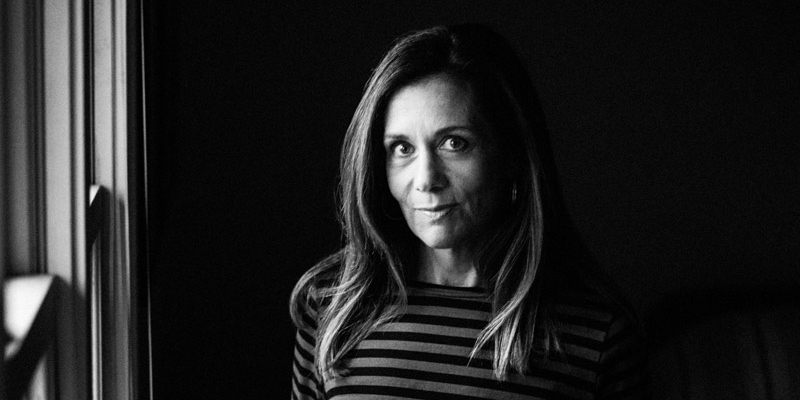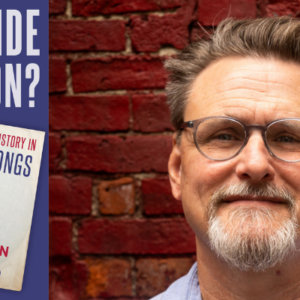
Claire Dederer on Embracing Ambiguity and Writing for the Good Faith Reader
In Conversation with Brad Listi on Otherppl
Claire Dederer is the guest. Her new book, Monsters: A Fan’s Dilemma, is out now from Knopf.
Subscribe and download the episode, wherever you get your podcasts!
From the episode:
Brad Listi: You say, when it comes to cancel culture, this moment and the social media environment that we live in, I think in particular as it applies to 2017 and after—the MeToo moment—you say, “This trade-off is depressing and maybe even inhuman.” And the trade-off I think you’re referring to is people being canceled and having to engage at this level constantly. “The trade-off is depressing and maybe even inhuman, but to my mind, it’s the bargain that’s on the table right now.
Some people endure shaming, deserved or undeserved, so that some other people can say what happened to them. Instead of accepting that bargain, we make up an insulting and increasingly dumb name—cancel culture—that invalidates half of the equation. The half where people are able to say something is wrong. Perhaps this is the wrong bargain. Probably it is. But this is the reality we live in.” And it goes on from there.
I just found that to be about as right of an assessment as one could honestly make. I mean, it’s complicated, right?
Claire Dederer: Yeah. That was the hardest passage to write in the whole book.
Brad Listi: Was it?
Claire Dederer: By far.
Brad Listi: Maybe that’s why I was drawn to it, because I’ve struggled to articulate that and I was like, oh somebody gave this a shot, like really dug in and tried.
Claire Dederer: I really tried. This book, if you were to be unkind about it, you could say it equivocate or wobbles. The book is really intended to operate like a book-length essay. I’m taking this problem and I’m walking around it, and simultaneously trying to build a trajectory, as you say, toward an attempt at a reconciliation of these various forces. But I am a person, a thinker, and a writer of deep ambivalence. There’s a lot of ambiguity in this book, and that is where I fall naturally. That’s why I’m a more essayistic person, though I have my polemical moments to point my finger.
What was hard in the book was, as I wrote in a really ambivalent and sort of complicated way about the subject—it took me five years to write the book, or six—I came to this moment a couple of years into the project where I was like, am I just afraid? Am I afraid if I take a specific stand, I’m going to get destroyed on Twitter? Am I equivocating? Am I ass-covering? I mean, let’s be real, that’s what we’re talking about. It was the most important moment in writing the book because I had to really think about giving a nuanced and balanced perspective, and whether it was honestly what I thought or if it was something I was doing for the bad faith reader.
Melissa Febos has this incredible interview where she talks about trying to teach her students to write for the good faith reader. Her students are sort of paralyzed sometimes by this inability to write in the Twitter era, or whatever it’s going to be next era. And she said, you have to put the bad faith reader out of your mind and just write toward that good faith reader. So I had this sort of come to Jesus watershed moment where I had to ask, am I dancing around this out of fear? Or am I really engaging in this very gray area, which is what I actually think?
That was great because I didn’t come out of it reflexively taking a stronger stand just to prove I was not scared. I recommitted myself to writing a book I believed was true rather than worrying about any of that other stuff. So then there was this work that took a really long time of going through every sentence in the book and saying, is this true? Do I believe it? Do I believe it? Do I believe it? And there was one spot that was just a squidgy, messy, muddy swamp. And it was this realization that I had to say what I thought about this whole concept of cancel culture. It’s sort of buried—I feel like I lead up to it in a chapter in a way that really makes sense to me, but it’s not a defining point in the book. It’s not a mission statement of the book. But it took me a year to write that one paragraph.
*
Claire Dederer is the author of Love and Trouble, and the New York Times best-selling memoir Poser: My Life in Twenty-Three Yoga Poses, which has been translated into twelve languages. A book critic, essayist, and reporter, Dederer is a longtime contributor to The New York Times and has also written for The Atlantic, Vogue, Slate, The Nation, and New York magazine. She lives near Seattle with her family.
Otherppl with Brad Listi
Otherppl with Brad Listi is a weekly podcast featuring in-depth interviews with today’s leading writers. All episodes—hundreds of them—are available for free. Listen via iTunes, Stitcher, iHeart Radio, or right here on Lit Hub. You can also download the Otherppl with Brad Listi app, available for iPhone and Android.



















